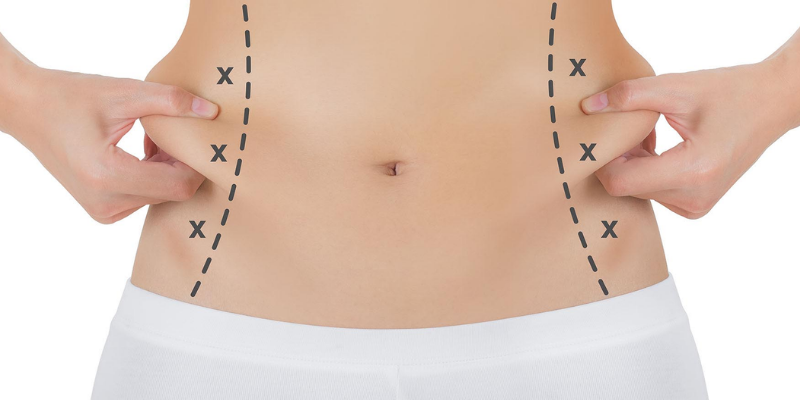Will Medicaid Pay For Weight Loss Surgery
Will Medicaid pay for weight loss surgery? Today, many obese patients are wondering the answer to this question. In this article, we have discussed the details of the surgery. And the cost situation for people who can no longer continue their lives with excess weight. And need bariatric treatment.
Bariatriy is a word created from the Greek words barós = heaviness, weight and iatrós = doctor. And means medicine that deals with the treatment, prevention, development and spread of obesity. Obesity in particular, i.e. morbid obesity, is the focus of bariatrics. Bariatrics, therefore, comprises several sub-areas of medicine.
Bariatric accordingly means everything that has to do with therapy, prophylaxis, diagnostics and follow-up care for obesity.
What is Bariatric Surgery?
Bariatric surgery is a part of bariatric surgery that deals with the surgical treatment of obesity. One, therefore, speaks of bariatric surgery. The aim of bariatric surgery is to reduce or even eliminate the negative effects of obesity. It is important to understand that bariatric surgery is not primarily aimed at weight loss. But should primarily prevent the long-term consequences of metabolic disorders, such as increased blood sugar. One speaks therefore of metabolic surgery.
Nevertheless, weight loss is of course always the most impressive result of bariatric surgery. Which has a positive effect on other secondary diseases, such as joint wear. Last but not least, body feeling.
What Bariatric Operations Are There?
Basically, bariatric surgery follows the approach of changing the intake. And the passage of food in the body in such a way that the desired results occur. A distinction can be made between two mechanisms of action. In the case of restrictive interventions, the amount of food consumed is limited in particular. This is usually done through gastric surgery. Which leads to a reduction in the size of the stomach. As is the case with the application of the gastric sleeve or the gastric band.
The second mechanism takes advantage of reduced food intake to permanently reduce calorie intake. One later mentions a malabsorptive intervention. This leads to an effective reduction in calorie intake.
Common procedures commonly used in Europe include gastric bypass, gastric banding and gastric sleeve. There are also other surgical procedures and techniques.
A Diet With Gastric Band
For the next weeks, patients will receive a nutrition plan from the hospital that fully describes the nature of the food. For about two weeks, only liquid foods are on the menu, and for the next two weeks, only soft foods are on the menu. About four weeks after surgery, you finally start again with normal food. But there are a few things to consider:
Those who wear gastric bands are simply not allowed to eat less. At the same time, old eating habits change. Each bite must be chewed very well so that food can pass easily through the throat. Long-fiber meat (beef, pork) or vegetables often causes problems.
Since liquids also fill the small stomach, you should separate eating and drinking at different times, at least for a short time.
People who wear gastric bands should avoid sweets, especially sweet drinks, as well as alcohol, high-calorie soups and porridge. They can pass unhindered through the narrowing between the front and the rest of the stomach, making you fat and thus counteracting the slimming effect.
How Well Am I After A Bariatric Procedure?
The recovery period after the operation differs depending on the procedure and the patient. Typically, you can leave the hospital after 3 to 5 days. However, the changes in eating habits, the significantly reduced amount of food consumed. And any discomfort caused by the operation will continue. In particular, the necessity of 6 to 8 daily meal recordings preoccupies the patients even longer.
As a rule, however, the body has got used to the changes after about 3 months. And the patient has will adapt to the new circumstances. That doesn’t mean that you have to wait until you can go back to your job. Usually, this is possible after approx. 2 weeks. But here, too, there are differences depending on the course of treatment and the patient.
Who Can Have Bariatric Surgery?
Not everyone who is overweight is an immediate candidate for obesity surgery. In addition to a BMI of 35 kg / m². This includes in particular pregnancies. The patient should also refrain from pregnancy for one year after the operation. After this time, however, you can get pregnant again. However, attention should be paid to the increased calorie requirement for mother and baby. This is why the pregnancy should be accompanied by bariatric doctors in addition to gynecologists.
More Details Under Will Medicaid Pay For Weight Loss Surgery
Age is also important in the assessment for bariatric surgery. Typically, you should be of legal age before performing an operation. However, the proportion of obese adolescents is currently increasing sharply. And with it the proportion of young people with pre-existing blood sugar disorders. Against this background, underage patients are increasingly being operated on. In addition to the usual clarifications, it is also important to ensure psychological support. However, there must always be a medical need to perform such an operation.
Cost: Will Medicaid Pay For Weight Loss Surgery
The costs of different stomach reduction methods vary considerably. Bearing the costs is not yet a standard benefit of statutory health insurance (GKV). This usually forwards it to the medical service of the health insurance companies (MDK), which looks into the matter and approves or refuses to bear the costs of stomach reduction.
Medicare Coverage: Will Medicaid Pay For Weight Loss Surgery
Many patients with obesity problems want to learn the answer to the question of will Medicaid pays for weight loss surgery. In fact, the state health program covers some weight-loss surgeries and laparoscopic taping. If you’re on Medicare, part of the cost of gastric bypass surgery and related care may be reimbursed. But for this, you need to be both obese and have obesity problems. Such as type 2 diabetes or coronary artery disease. You must have this surgery performed at a facility whose procedure is approved by Medicare.
How to Qualify for Weight Loss Surgery with a BMI over 35 and not 40?
If your BMI for weight loss surgery is over 35 but not quite 40, you may still be eligible to check the requirements for “how to qualify for weight loss surgery?” depending on what other factors are present in your individual case. Your healthcare provider will also evaluate your health history and any other medical conditions you have that may affect surgery or its success of it. They may ask questions related to your diet and exercise habits, as well as any medications or supplements you are currently taking. If all other criteria are met, they may recommend weight loss surgery as a potential treatment option.

Speak to your doctor to find out what weight loss surgery requirements are needed to get approved for bariatric surgery. Don’t hesitate to ask your doctor questions about the process and discuss any concerns that you have before making a decision. With proper education and understanding of the risks involved, weight loss surgery can be an effective method of achieving long-term success when it comes to weight management. If you are curious about other perspectives on “how to qualify for weight loss surgery?” keep reading our blog.





